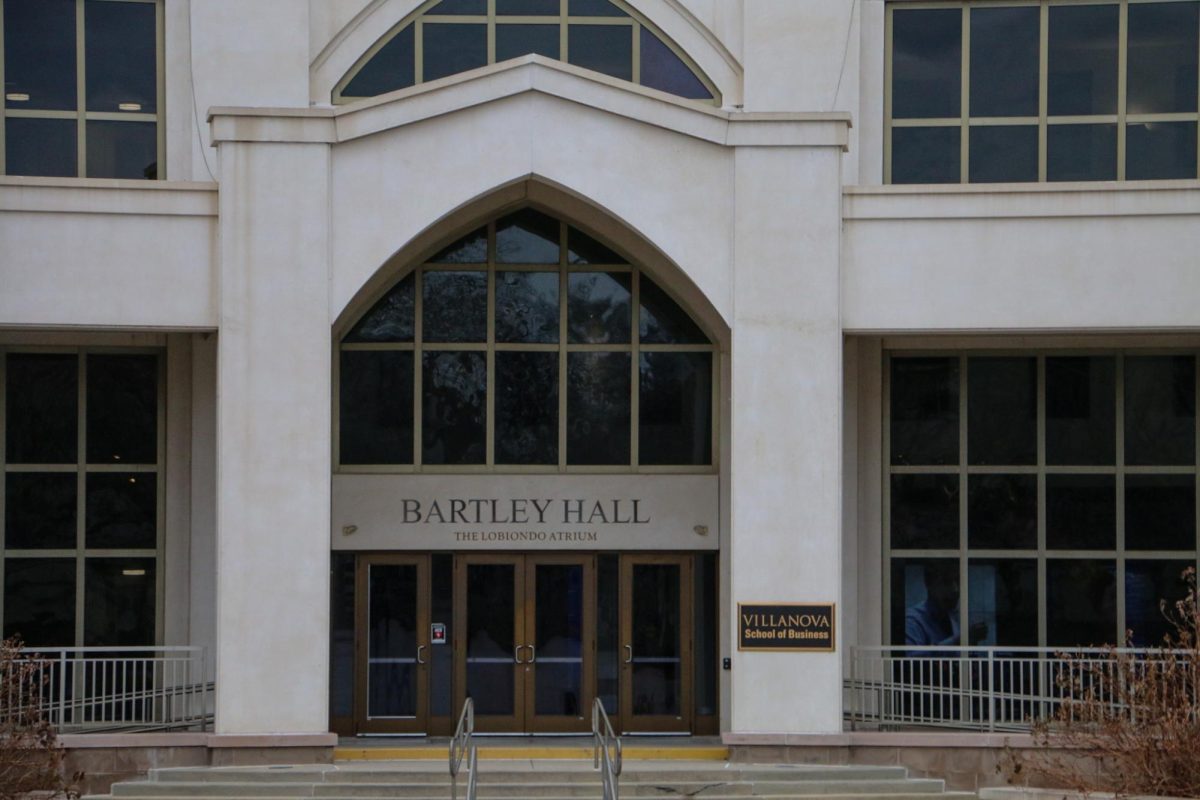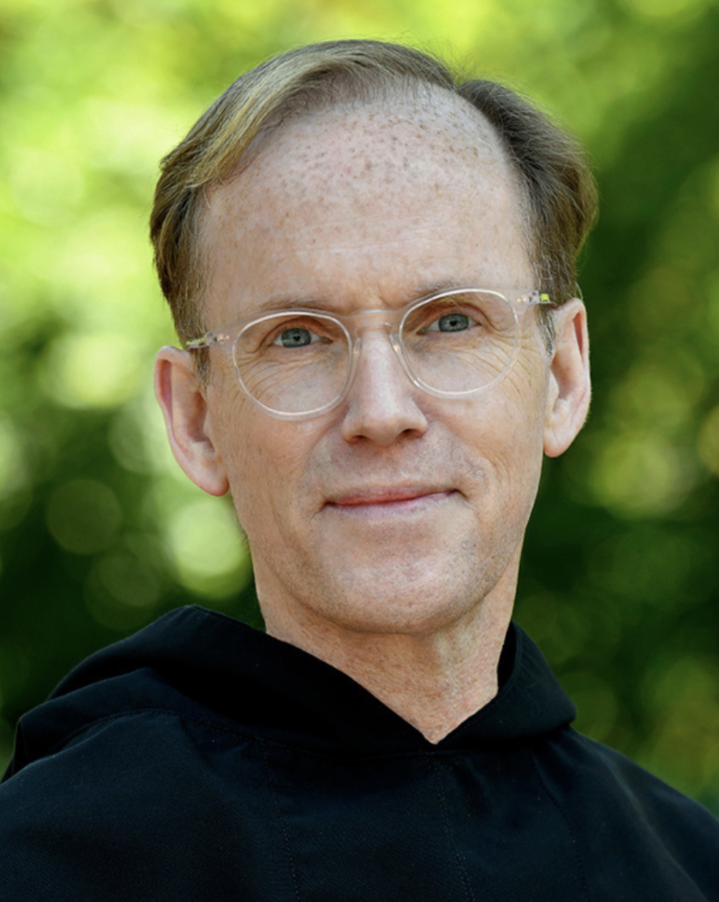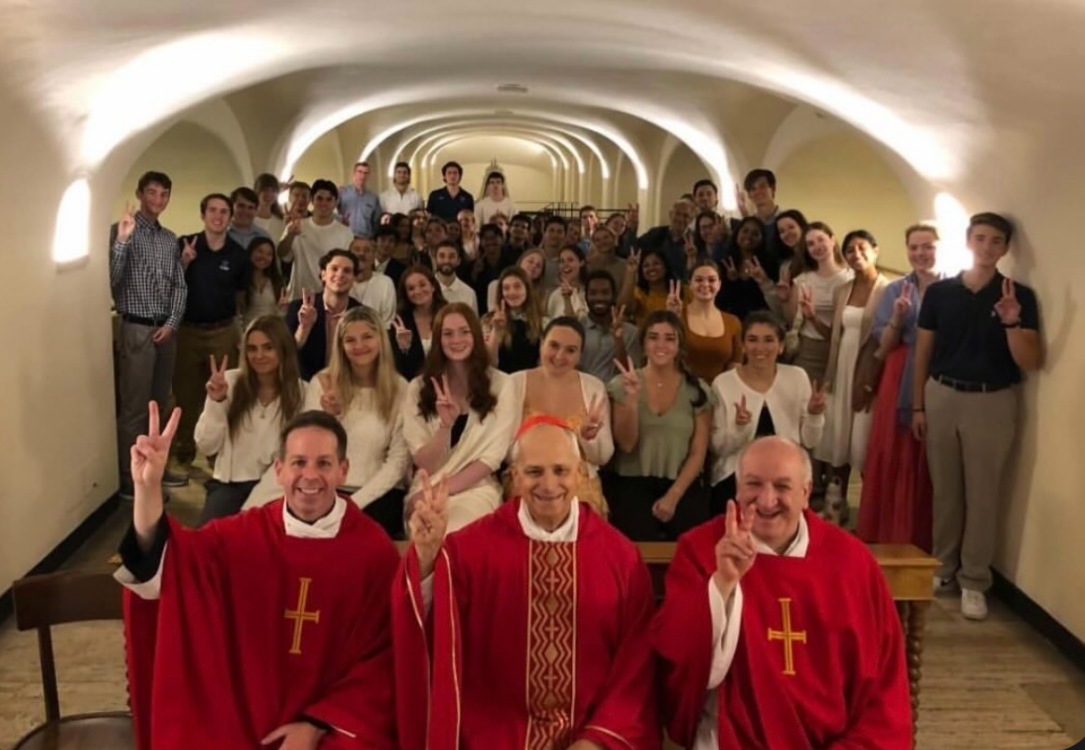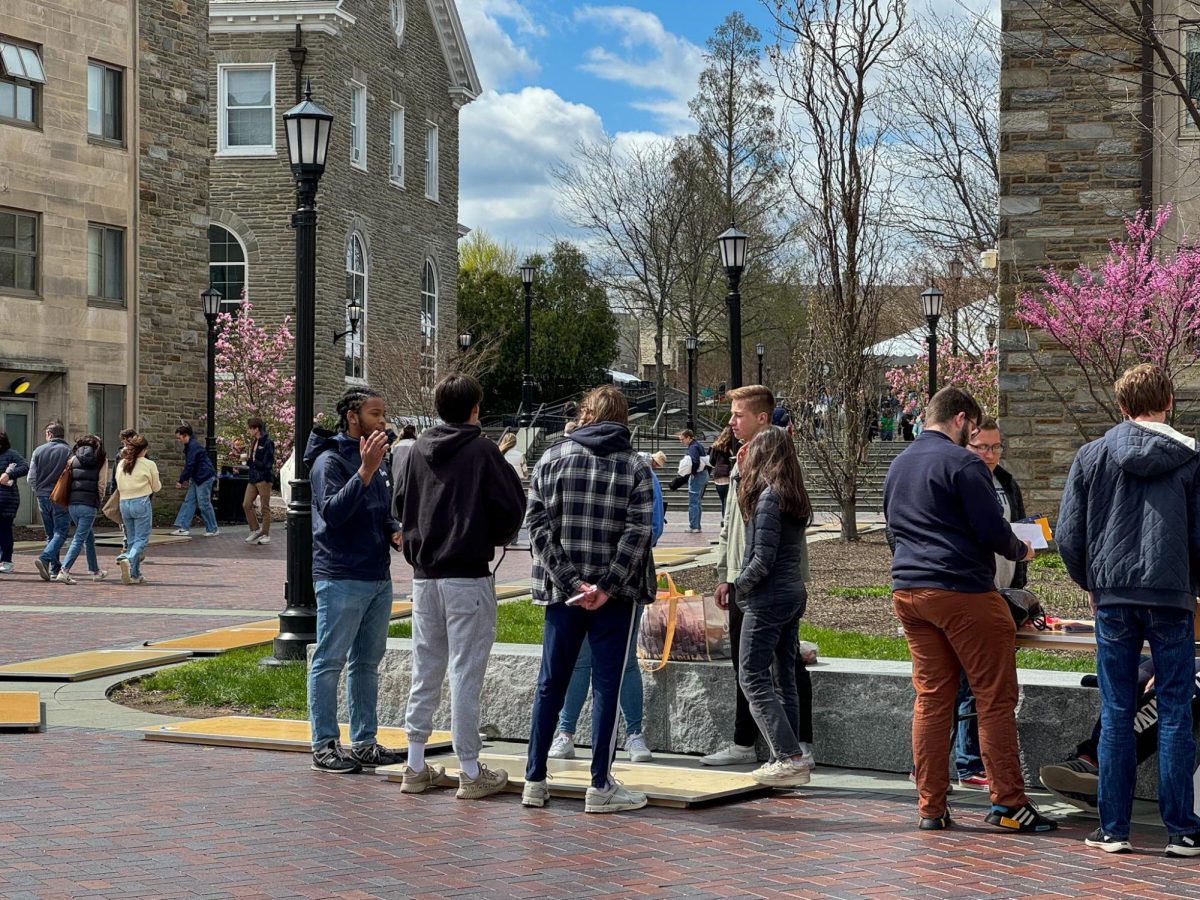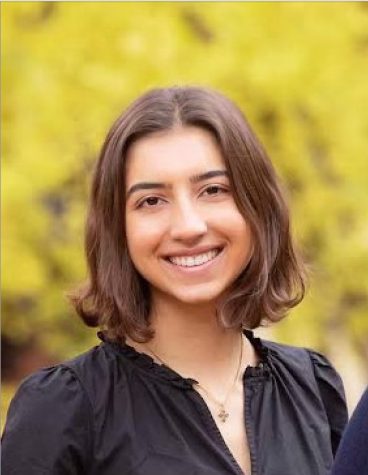On Oct. 22, the Fall 2024 Election Series continued with “Voices from the Border: Immigration Stories, Challenges and Politics.” This panel discussion took place in Bartley Hall and covered many different angles of the immigration discussion.
Included in the discussion were Daniel Cortes, J.D., Director of CARES and professor at Charles Widger School of Law; Andrea Solís Canto, third-year law student at Villanova Charles Widger School of law; and Alondra, an asylee from central America and current permanent resident. Andrea Ávila Colón, a sophomore Villanova student working as an interpreter for the Villanova law school clinics, was also included in the discussion.
Cortes started the discussion with a background on immigration law as it is today. He explained that asylum is protected by international law and has been since the end of World War II.
However, the United States government has put some policies in place to make asylum seeking harder. These include NPP, or “remain in Mexico policy;” Title 42, a policy enacted during Covid-19 that enabled the US to send back individuals to their country due to the pandemic; and CBP1, a new digital process that requires asylum seekers to download an application on their phone and wait for an appointment in Mexico. Cortes then explained the next steps in the asylum-seeking process.
“If somebody does make it to the border and present themselves then they are able to have either a credible fear interview or a reasonable fear interview to determine if they are afraid to go back to their country, and then they are able to see an immigration judge,” Cortes said.
According to Cortes, these immigration judge meetings are where the Villanova Law School’s CARES program steps up, helping asylum-seekers present their information in front of a judge and in front of the asylum office.
Canto discussed her experience visiting the border for a service trip sponsored by the Villanova Charles Widger School of Law. For this service trip, eight students from the Law School volunteered at shelters, advising individuals on their rights in both Tijuana, Mexico and San Diego. Canto explained that she “had the opportunity to really get an understanding of what is going on at the border.”
Canto was asked about the most challenging aspect of her experience.
“It was really seeing how stuck a lot of people are currently just waiting to get some sort of opportunity or access to asylum,” she said.
She further explained that there are “a lot of people who really are trying to find a way to find access to a smartphone, the internet, make an appointment,” to do things the lawful way, but that there are a lot of obstacles that make this harder.
Canto also described other challenges that asylum-seekers face at the border, including a myriad of technical difficulties, groups taking advantage of these individuals (such as police, cartels and others) and the incredible challenges of unaccompanied minors.
The focus of the discussion was on Alondra’s experience seeking asylum and the long journey she has been on since 2018 when she first left Honduras. Alondra, as a transgender woman, left her home country of Honduras the “number one reason [being] transphobia.”
Alondra’s journey from Honduras to Mexico took around eight months, traveling through several countries. Alondra described her experience reaching the border and turning herself in.
“They treated me as if I was a terrorist,” she said.
Alondra was interrogated and sent to the Florence Detention Center in Arizona. Here, she went through several emotions and met many different people from different countries.
During her detention, she met with a judge and after initially being told her asylum was not going to be granted, she was told on Dec. 12 that she was being given asylum and she was “happy that [she] was given the opportunity.” After this process, Alondra went through the difficult experience of changing her name.
The next step for Alondra is officially obtaining her citizenship, which comes with its own challenges. This test requires a proficiency in English to around the fifth or sixth grade level, something not easy to accomplish when working or taking care of other tasks.
The event was closed with a discussion of what individuals should take from this discussion. Alondra expressed that “not all [people] come here with bad intentions.”
Canto continued presenting on the information, conveying to the audience takeaways from the day.
“What we see in the news is so incomplete that I think it is always important to make an effort to take a step beyond what you are reading.”
This discussion was sponsored by the Department of Political Science, Charles Widger School of Law, the Center of Peace and Justice Education and the Office of Mission and Ministry.

